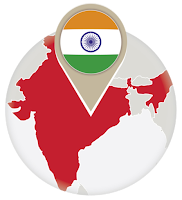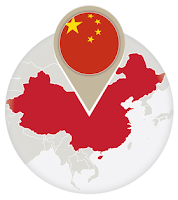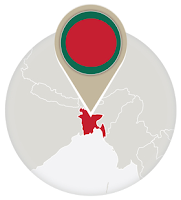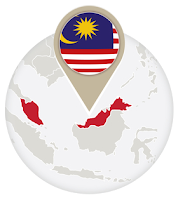 In August, we reported the deaths of 27 journalists since the beginning of 2016. Now, the year closes with a total of 48 journalist lives lost: 18 murdered, 26 killed in crossfire or combat, and 3 killed on dangerous assignments. The Committee to Protect Journalists’ list has grown to include:
In August, we reported the deaths of 27 journalists since the beginning of 2016. Now, the year closes with a total of 48 journalist lives lost: 18 murdered, 26 killed in crossfire or combat, and 3 killed on dangerous assignments. The Committee to Protect Journalists’ list has grown to include:Syria – 6 more journalists killed (14 total)
- Mohsen Khazaei, an Islamic Republic of Iran Broadcasting News Agency (IRIB) reporter, was killed in November by shrapnel. He had been reporting on fighting in western Aleppo.
- Abdul Salam Kanaan, an Al-Jisr TV photographer, was killed in October by shrapnel from a missile. He had been recording Syrian airstrikes on Zafraneh at the time.
- Taha Shawkat Al-Halou, freelance photographer and former photographer and reporter for the Daret Ezza Media Center, was killed in August by a missile. He was returning from covering airstrikes in Aleppo.
- Ahmad Hallak, an Al-Buraq Media Institution correspondent, was killed in August by an airstrike. Hallak had been en route to report on fighting in Aleppo.
- Mohammed Sayyed Hassan, an All4Syria reporter and Al-Nabaa Media Center founder, was killed in August by an airstrike. Hassan had been reporting on Russian airstrikes on Atareb at the time.
- Abdullah Mohammad Ghannam, a correspondent for the Shahba Press Agency, was killed in July by an airstrike. He had been filming the fallout of a previous airstrike.
Iraq – 4 more journalists killed (6 total)
- Ali Risan, an Al-Sumaria TV channel cameraman, was killed by a sniper’s bullet in October. Risan had been covering fighting between government security forces and Islamic State forces in the Al-Shura area.
- Ahmet Haceroglu, a Turkmeneli TV manager, was shot and killed by a sniper’s bullet in October. He had been covering fighting between Kurdish security forces and Islamic State forces in Kirkuk.
- Mustafa Said, a Kurdistan TV cameraman, was killed in August by mortar fire. He had been covering fighting between Kurdish security forces and Islamic State forces near Mosul.
- Ali Mahmud, an Al-Ghadeer TV cameraman, was killed in July by a heat-seeking missile. He had been covering fighting between Kurdish security forces and Islamic State forces near Mosul.
Yemen – 2 more journalists killed (6 total)
- Awab al-Zubiry, a freelance photojournalist and communications student, was killed in November by explosives. He had been reporting on fighting between pro-government and rebel forces in Taiz.
- Mubarak al-Abadi, president of the Nabaa Media Foundation, was killed in August by mortar shell. He had been reporting on fighting between pro-government and rebel forces in al-Jawf province.
Afghanistan – 2 more journalists killed (4 total)
- Naimatullah Zaheer, a reporter for Ariana News Television Networks, was killed by a roadside bomb in November. Zaheer had been en route to Lashkar Gah, where the Afghan military and the Taliban had fought the night prior.
- Mohammad Nasir Mudasir, editor-in-chief of Melli Paigham Radio and founding member of the Afghan Independent Journalists’ Association, was shot and killed by unknown gunmen outside his office in December. Mudasir had frequently received threats from the Taliban.
Libya – 1 more journalist killed (3 total)
- Jeroen Oerlemans, a freelance photographer from the Netherlands, was killed in October while covering a battle in Sirte. He had been shot while running across a street to capture an image of the front line.
Somalia – 3 journalists killed
- Mahad Ali Mohamed, a Codka Mudug Radio journalist, was shot and killed after leaving his house in November. A stray bullet from ongoing fighting was responsible for his death.
- Abdiaziz Ali, a Radio Shabelle journalist, was shot and killed in September by two men on motorbikes. Ali had recently contributed to a series about Somalis forced to flee their homes.
- Sagal Salad Osman, a Radio Mogadishu producer and presenter, was shot and killed in June on her university campus. The police believe Al-Shabaab to be responsible.
Pakistan – 2 journalists killed
- Mehmood Khan and Shehzad Ahmed, cameramen for DawnNews and Aaj News, respectively, died in August in a Quetta suicide attack that killed more than 70. Khan and Ahmed were in attendance to film a group assembled to mourn the loss of Bilal Kasi, the murdered president of the Baluchistan Bar Association.
Guinea – 1 journalist killed
- El-Hadj Mohamed Diallo, reporter for Guinée7 and Afrik, was shot and killed in February during unrest outside a meeting of the Union of Democratic Forces of Guinea, the country’s main opposition party. Diallo was in attendance to report on the events.
Ukraine – 1 journalist killed
- Pavel Sheremet, a writer for Ukrainska Pravda and recipient of CPJ’s 1998 International Press Freedom Award, was killed in July when the car he was driving exploded. Sheremet had been on his way host a show at Radio Vesti.
Myanmar – 1 journalist killed
- Soe Moe Tun, a reporter for Daily Eleven, died in December in an attack that left bruises on his face and head. He regularly reported on sensitive subjects.
Brazil – 1 journalist killed
- João Miranda do Carmo, editor of the confrontational SAD Sem Censura (Santo Antonio do Descoberto Uncensored) was shot and killed outside his house in July. Prior to the attack, he had received death threats and witnessed his car set on fire.
Be safe, surf secure and stay Rando!
Image credit of BOLDG/Shutterstock.com.
Want more SumTips? Read on!- SumTips: 7 Findings From Secure the News' Leaderboard
- SumTips: 5 Highlights of Snowden's Twitter Interview
- SumTips: 6 Reasons the Internet Is Unkind to Indian Women
Want SumTips sent to your inbox? Sign up for our weekly newsletter ("Security Tips and News" at bottom of page).
SumRando Cybersecurity is a Mauritius-based VPN, Web Proxy and Secure Messenger provider. Surf secure and stay Rando!

























